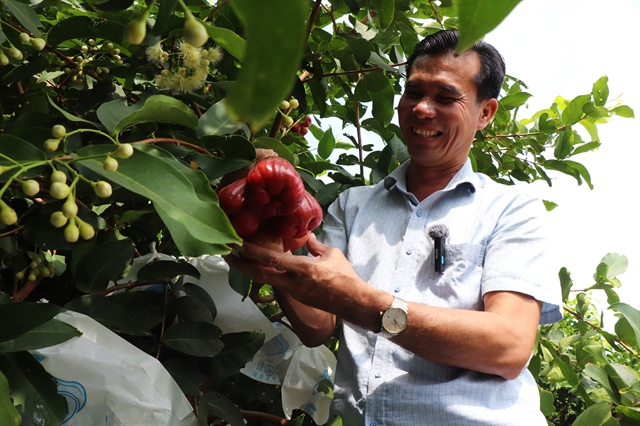 Economy
Economy

 |
| A worker at a foreign-invested company in Hải Phòng. To remain attractive to foreign capital, Việt Nam will improve the legal framework to create a favourable investment climate for multinational enterprises. — VNA/VNS Photo Vũ Sinh |
HÀ NỘI — Việt Nam should hasten steps to adopt the global minimum corporate income tax from the beginning of next year in the context that the country’s major investors are applying the Organisation for Economic Co-operation and Development (OECD)’s initiative starting from 2024, Deputy Director of the General Department of Taxation Đặng Ngọc Minh said.
The global minimum tax was not compulsory but would have a significant impact on foreign capital recipients like Việt Nam, which were offering tax incentives to MNEs as a major tool to attract capital influx, whether the country adopted the global minimum tax or not.
The OECD’s global anti-base erosion rules imposed a minimum effective level of taxation of 15 per cent for MNEs that meet the 750-million-euro threshold.
Ngọc said in the context that major FDI investors such as Singapore, Japan and the Republic of Korea were adopting the global tax policy from next year, allowing these countries to collect top-up taxes on MNEs which were enjoying a tax rate of below 15 per cent for their investment in a jurisdiction, applying the global minimum tax would be essential for Việt Nam to gain the right to collect the top-up taxes.
Although the standard corporate income tax rate was 20 per cent, higher than the global minimum tax level, the country was offering preferential policies for foreign investors such as tax exemptions and tax reductions, which made the actual rate on MNEs below 15 per cent, Ngọc said.
The Ministry of Finance drafted a resolution for the adaptation of the global minimum tax, paving the way for the adoption of the global minimum tax in Việt Nam from next year, he added.
To remain attractive to foreign capital, Việt Nam would improve the legal framework to create a favourable investment climate for MNEs, including mechanisms for non-tariff zones, incentives on land, infrastructure of industrial zones and export-processing zones, and exemption of indirect taxes.
Foreign-invested enterprises mainly invested in industrial parks, economic zones and export-processing zones, he said, citing statistics that there were 407 industrial parks across the country attracting 11,200 foreign-invested projects with a total registered capital of $231 billion.
Thus, it was necessary to develop policies to support enterprises in industrial and economic zones, especially concerning land use fees, he said.
Incentives should be given to enterprises which own core technologies and operate in sectors of priority for attracting foreign capital, such as the semiconductor industry. Other support included the construction of homes for workers and infrastructure systems.
Việt Nam must expedite the process of adopting the global minimum tax to remain attractive to foreign capital, he stressed.
According to researchers from the Ministry of Finance, institutional reform should be considered a priority in the next period of attracting FDI.
“In the long term, tax policy should only be considered an integral part of the policy to attract investment, not the most important tool,” the researchers wrote. “It is important to propose synchronous solutions to create a favourable, transparent and stable investment business environment and to ensure equal access at reasonable costs to product factors, including capital, labour, raw material and infrastructure.”
"Việt Nam also needs to build a good tax system with low compliance costs for taxpayers, which is transparent, fair, effective and consistent with international practices and standards."
The Ministry of Finance, in the draft for amending the Law on Corporate Income Tax, proposed the introduction of qualified domestic minimum top-up taxes (QDMTT) and income inclusion rules (IRR) to adapt to the global minimum tax.
It is estimated that about 113 MNEs in Việt Nam will be affected by the global minimum tax if it is applied from the beginning of next year.— VNS




